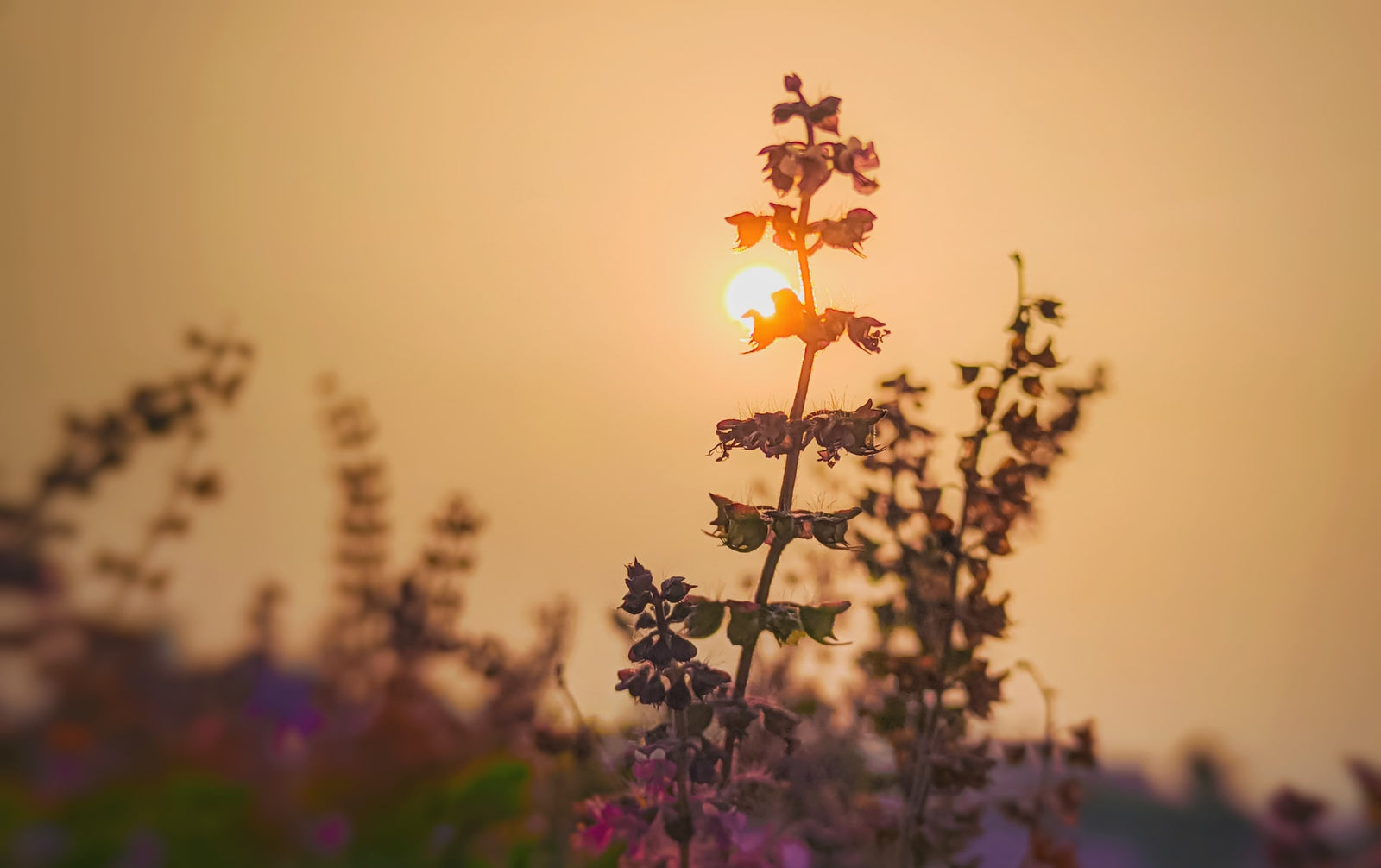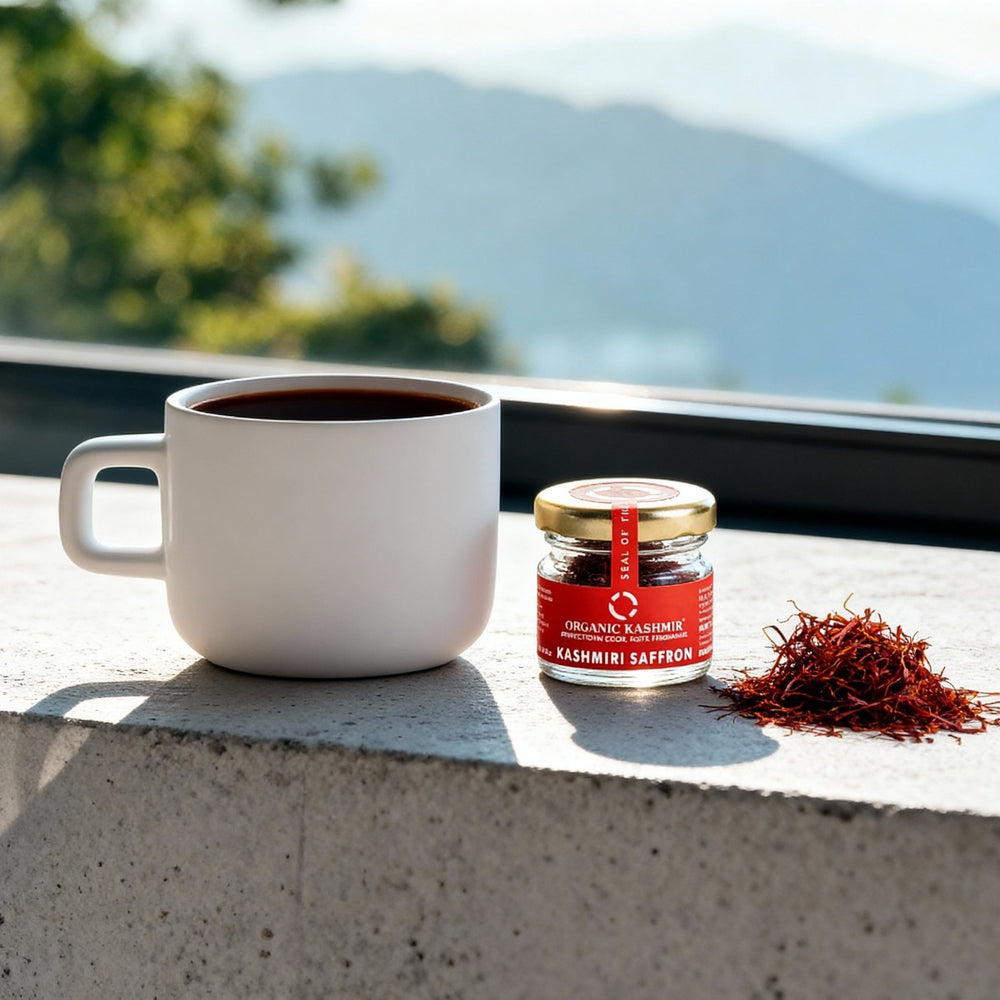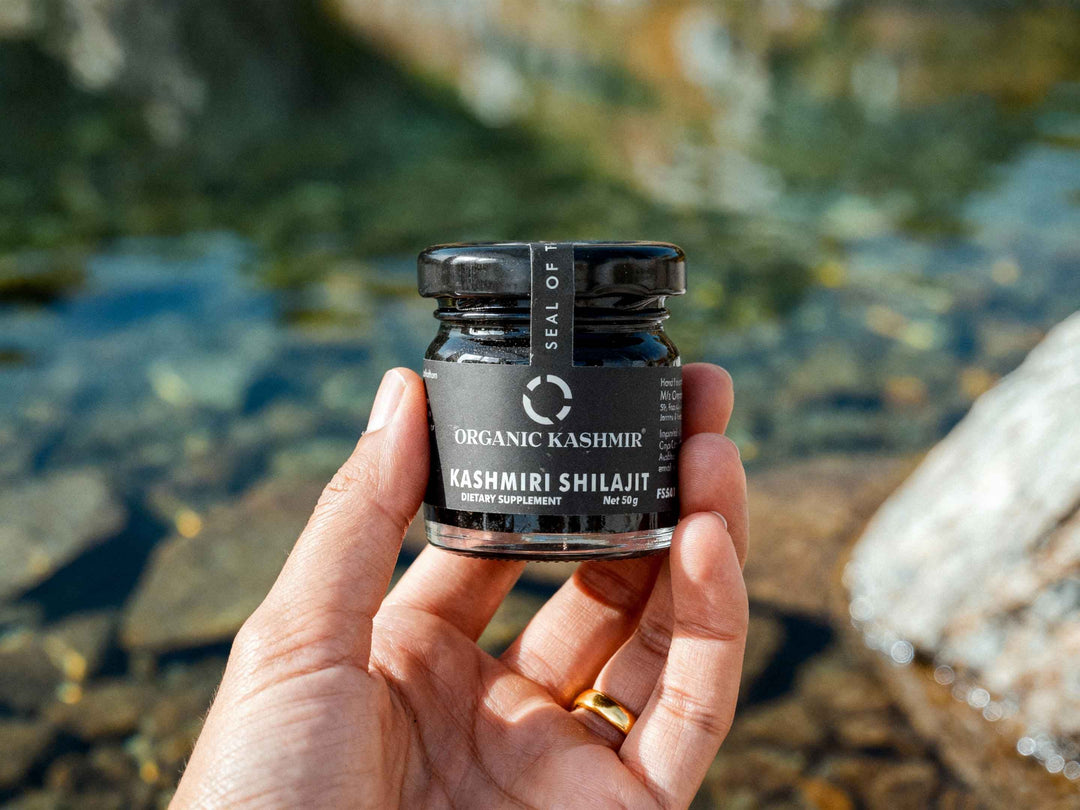Tulsi: The Mother Medicine of Nature

Tulsi is known as the "Mother Medicine of Nature." It has both- spiritual, as well as health and healing effect. Its leaves are used in a number of dishes as it preserves and increases the qualities of the dish, in addition to enhancing its flavour. It is used worldwide in daily worship and is found in almost every Indian house, as it is believed to bring good vibes and presence of God with it. It increases our sattva and decreases rajas and tamas. It is used in treating many ailments to achieve a healthy body.
Botanical Name- Ocimum sanctum Linn.
Family Name- Lamiaceae
Other names:
Sursa- good taste,
Sulabha- propitious,
Surabhi- having good fragrance,
Gramya- used in every household,
Visnuvallabha, Haripriya- beloved of Lord Vishnu,
Sumanjari, Bahumanjari- having beautiful and heavy inflorescence,
Bhutaghni- killer of bad vibes.
Ayurvedic Composition:
Rasa (taste) – Katu (pungent), Tikta (bitter)
Guna (qualities) – Laghu (light to digest), Ruksha (dryness), Tikshna(invading)
Vipaka (post digestion taste) – Katu (pungent)
Veerya (potency) – Ushna (hot)
Karma (Action) – Vata-kapha har ( pacifies vata and kapha)
Chemical composition:
Eugenol is the major constituent of Tulsi. Other compounds are Nerol, Terpinene Pinene and Carvacrol. The leaves contain Ursolic acid, Apigenin, Luteolin and Orientin.
Medicinal properties in Tulsi according to Samhita:
- Bhavprakash nighantu:
Increases heat production in body (daha-piita krita), helpful in skin diseases (kustha-jeet), useful in urinary disorders (kricha-jeet), relieves pain in side-flanks (parshwa-rook jeet), balances disorders of kapha-vata dosha (kapha vaat-jeet).
- Dhanvantari Nighantu:
Suppressor of excess mucus (kapha-vinasani), anti-microbial (Krimi-doshar), brings taste to food (ruchikar), boosts digestive fire (deepana), supports cardiac function (hridya).
- Raj Nighantu:
Anti-microbial (Jantu-hara), useful in mental disorders (bhoot-hara), relives cold and cough (kasa-hara), lowers urge to vomit (vami-hara).
- Kaiydev nighantu:
Useful in respiratory disorders, (Kasa-shwas hara), removes unpleasant smell coming out of body (durgandh-hara), supresses effect of poison (visha-hara), useful in urinary disorders (Kricha-hara), breakdown of stones formed in body (ashma-har), useful in eye infections (driga-rogahara).
Types of Tulsi:
Ancient texts explains two types of Tulsi:
- Shukla, Rama Tulsi (White tulsi)
- Krishna, Shyama Tulsi (Black tulsi)
What makes TULSI a queen of herbs?
Tulsi is a broad-spectrum drug which encompasses enormous benefits in field of human health as well as in other arena related to daily use, such as, in hand sanitizer, mouthwash, anti-septic solutions, cosmetic products, food preservatives, tea, as a water purifier, as well as in animal husbandry.
Due to its active principles, it has:
- Anti-fever action: In fever, it can be taken as expressed juice or can be added in decoction along with other drugs.
- Anti-aging effect: Anti-oxidants present in it, makes it effective for reducing signs of aging.
- Provides cardiac support: It increases high density lipid and decreases low density lipid, thereby reducing risk of ischemia, artery blockages, heart attacks, etc.
- Promotes eye and oral health: It promotes eye and oral health by preventing viral, bacterial and fungal infections.
- Good for skin health: It is rich in antioxidants, so, it helps to clear out pimples, fine lines, acnes, blemishes etc.
- Immunity booster: Tulsi is rich in Vitamin C and Zinc. It thus acts as a natural immunity booster and keeps infections at bay.
- Supports respiratory system: Camphene, Cineole, and Eugenol present in it helps reduce cold and congestion in the chest, giving relief from various respiratory ailments.
- Anti-cancer properties: Phytochemicals present in Tulsi have strong antioxidant properties, making it an anti-cancer drug.
How to use:
- Daily 1-2 Tulsi leaves can be chewed raw, if freshly plucked.
- Tulsi leaves or powder can be added to tea, for boosting immunity, relieving fever, inflammation, and respiratory ailments.
- A decoction can be made by adding powder or leaves in it, and then be consumed for promoting good health in a number of ways.
- Juice of Tulsi leaves mixed with honey and ginger is effective in cough and cold.
- Chewing 3-4 fresh Tulsi leaves controls stress and helps manage anxiety.
- Applying the paste of Tulsi, Alovera, and rose water on face for 20 minutes, followed by washing it off with cold water can help achieve good skin.
- Mixing Tulsi powder in few drops of water, and applying it locally helps in enhancing the circulation of blood. When applied on feet before going to bed leads to a relaxing, stress-free sleep.
Note: Holy basil (Ocimum sanctum) should not be confused with basil (Ocimum basilicum), which is very commonly used in cooking.
Always consider taking prescription from an Ayurvedic doctor before taking any medication, especially in case of hypertension, pregnancy, breast feeding, diabetes, etc.
Author | Dr. Monika Mittal
Editor | Debleena Chatterjee
References:
- https://www.google.com/amp/s/pharmeasy.in
- https://maharishiayurvedaindia.com/ayurveda-knowledge-center/benefits-of-tulsi
- https://www.google.com/amp/s/www.1mg.com/ayurveda/tulsi-12/amp
- https://www.ncbi.nlm.nih.gov/pmc/articles/PMC4296439/
Published By Rasayana Limited. All Rights Reserved. No part of this publication may be reproduced or transmitted in any form or by any means, electronic or mechanical, including photocopying, recording, or any information storage and retrieval system, without permission in writing from the publisher.
Photography: Anshu Sahu







